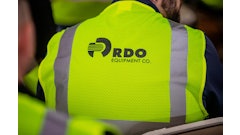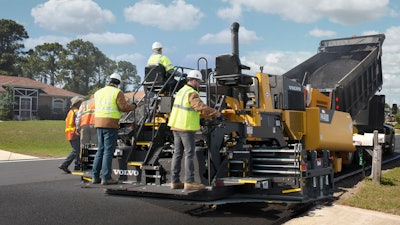
Investing in a new piece of equipment is not something contractors take lightly. However, what are the things you need consider beyond price when you’re looking to purchase a new paver?
“Contractors look for many of the same concepts and features today as they did two decades ago,” Tom Travers with Carlson Paving says. “They are looking for reliability, lifecycle and ease of maintenance and operation. In short, they are looking for machines that will make them money and provide positive return on investment.”
And while the basic elements of what contractors are looking for hasn’t changed, the concept of owning a total package offered by manufacturers has ushered in a new way to buy. Today, contractors are considering total cost of ownership and not just initial price in order to stay ahead of their competition.
“Manufacturers know they can’t just push iron anymore,” Bill Laing, paving product manager with Volvo Construction Equipment says. “When you’re investing in a machine, you’re not just investing in the iron, you’re investing in the total experience of working with that manufacturer.”
So when you’re ready to upgrade, we have you covered. Here are some things to consider when looking to invest in the total package for an asphalt paver.
Upgrades Improve Productivity
Fuel consumption, maintenance expenses, crew efficiency and resale value are just some examples of direct costs that can impact a contractor’s total cost of ownership and manufacturers have worked to improve their machines to make these costs more manageable.
“With our new machines, we’ve introduced Eco-Mode,” Jim Holland, vice president of Vogele pavers with Wirtgen America says. “What we've put there is a clutch that will disengage functions when the machine is idling. “The idea is to not only save fuel, but also to save wear on the hydraulic components. So you'll get a longer life cycle on the machine and that would, as well, reduce the cost of ownership, keep the total cost of ownership down.”
Another upgrade in recent years as a result of Tier IV compliance, is a better engine. Quieter engine options are helping reduce noise around the machine for a much more comfortable, safer work zone.
“Thermal imaging is something that I believe we’ll start to see more of in the coming years,” Laing adds. “Volvo already offers this type of system in Europe, and we have plans to bring it to North America. The program, called Pave Assist, provides the ability for the operator to see real-time information on a touchscreen display, such temperature variations in the asphalt. This information allows operators to make adjustments on the fly in order to avoid potential quality issues.”
With any piece of upgraded equipment, costs can add up quickly. Manufacturers recommend always weighing out the cost/benefit of each upgrade before making a commitment.
“You just have to look at how the upgrades increase productivity and could help with operator retention,” Laing says. “By saving time and money, you justify the cost.”
Operator Comfort
Speaking of operator retention, manufacturers are working hard to help with that as well.
“Contractors are looking for features that help to reduce manual labor for the crew as well as improve the quality of work the crew performs,” John Anderson with Caterpillar says. “Reducing manual labor simplifies the work and helps to retain employees who are knowledgeable about paving operations. High quality work, efficiently performed, promotes profitability and growth and also fosters a sense of pride with the organization.”
Operator comfort is also paramount in making sure your employees are productive.
“We make sure the controls and indicators are within arm's reach of the operator, whether he's on the creed or in the operator's seat,” Holland says. “We try to put all the functionality of the machine within easy grasp of the operators, and then we try to make it more intuitive to use by using popup screens rather than having to search their menus to find features. So, we use popup screens similar to what you'd see in your phone or in your car, and try to help the operator be more efficient.”
Efficiency is also being improved through electronic controls.
“Greater intuitiveness has played a larger role in the design and development of new platforms and technologies,” Travers adds. “One can see that with the greater reliance on electronics and software systems that enable contractors to get more out of a machine without the need of the “human” element, such as experience. Take the growth of grade control in the commercial class. Setting up grade automation on a commercial paver extracts the need for a screw man judging grade and making adjustments manually, adjustments that can be done incorrectly if not knowledgeable.”
Automation can also help operators learn the job more quickly and streamline the training process, which is key with the shortage of labor the industry is facing.
“With the labor shortage, one of the ways to keep operators is to make them comfortable,” Laing says. “Volvo has done a lot of work to reduce the ambient temperature around the operator driving the machine. We have worked to channel the hot air coming from the engine out and away from the machine.”
And since asphalt paving can be a less than comfortable experience, keeping operators cool is important.
“The top deck cooling package has probably done the most on Cat pavers to keep operators comfortable,” Anderson says. “This system keeps the paver operator cool and helps to keep noise away from the crew. Crews are able to carry on a conversational tone while they are paving and there is no blast of hot air on one side.
Carlson has also worked hard to reduce the heat contractors are in contact with on the machine.
“Dating back to the 1990’s, we have been the pioneer in electric heat, always shunning the dirty and dangerous diesel heating systems,” Travers says. “We have taken the same technologies of our highway-class heat systems and brought them to the commercial paver market on all of our screeds as standard. This means no more dealing with LPG canisters, the uneven heat and the premature wear of plates. The electric heat provides crew with a safe, comfortable screed heat system.”
Seat configurations that best suit the application and contractor preference combined with better visibility and ergonomic and intuitive control consoles all contribute to keeping an operator comfortable and productive.
“We’ve also provided the option of air ride heated seats,” Anderson says. “We all think of paving as such an unbearably hot operation, but often paving is conducted in less than ideal temperatures, particularly late or early in season.”
Dealers Deliver
Keeping your machine running is paramount to success in this business and can be a direct result of close dealer partnerships. A good dealer will help you get the most out of your machine and therefore dealers are one of the most important factors to consider when buying. Contractors should always make sure that the dealer can support them before purchasing equipment since a good and responsive dealer can be critical to a road contractor’s success, especially when the unexpected happens in the middle of the night.
“A good dealer, in this context, is one that wishes to partner with you when you purchase a machine and stays with you through the lifecycle of said machine,” Travers says. “These dealers bring extra value to your machine by offering classes on paving and maintenance, have factory-trained technicians to properly and promptly diagnose any service issue, and who has specialists that understand asphalt paving. Contractors will get the most out of their machine with a dealer as described, meaning they will see the most return on investment, more uptime and a positive impact to their bottom line.” And Laing adds that uptime is a huge differentiator in today’s paver market
“That all starts with the dealer — their local support and technical expertise can make a huge difference from one brand to another,” he says. “Telematics systems are also a critical tool to uptime. Traditional telematics systems can let contractors see where their machine is, what the fuel level is, and get basic fault codes to help diagnose issues before they result in a down machine.”
Volvo’s ActiveCare Direct is a machine monitoring and reporting service that allows dealers to shorten the reaction time if there is a problem with the machine.
“If a fault code comes through, Volvo does the legwork of providing the probable cause and recommended solution, so that the dealer and customer will know about it in near real time and can pull the right parts they need,” Laing adds.
And being able to react quickly is paramount in our world.
“In the paving world, asphalt is a perishable item,” Holland says. “You have a limited amount of time to get the material down, placed and compacted. Otherwise, you risk losing that material. So, with a perishable item, you have to react a lot quicker and that why you rely on the dealer to be able to take care of 70 to 75% of those issues.”
TCO & The Bottom Line
Contractors know that initial purchase price is just a small part of equipment ownership. What equipment ownership really comes down to is whether or not the machine will be functioning when it is needed.
“The total ownership experience impacts the bottom line of the company,” Travers says. “If a machine is troublesome by means of consistent breakdowns, constant maintenance and significant downtime, the machine has a negative impact on the company’s profits. If the machine is trouble-free with routine maintenance, has more uptime and achieves ride bonuses, this machine has a net positive impact on the bottom line.”
This is why it’s important to invest in a machine that has a proven track record of reliability and ease of maintenance. Manufacturers also urge contractors keep production in mind when they consider total cost of ownership.
“With total cost of ownership, the most important thing they need to take into account is production,” Holland says. “A lot of our customers are looking at TCO, but not all of them are tying in the amount of material that goes through a paver, and I think that's critical. It's not just about what the cost per hour is, but it's also what is the cost per ton, because certain machines and certain applications, you might be putting a lot more tonnage through there and the same amount of hours.
“Contractors are paid by the ton, not by the hour or by the mile. So it's a good balance to look at what does that machine cost you per ton and what does it cost you per hour? I think that's a critical piece that is starting to be paid attention to by some customers and it's extremely important.”
An asphalt paver is an investment you’re going to live with for years to come and price is not always the most important thing to consider when purchasing equipment. Other factors will be key in making sure you get the most out of your investment. Do you research and make sure you’re going to end up with exactly what you want.
“The money you can save on the difference of one brand vs. another won’t go far if the crew doesn’t like running the new machine or the dealer can’t support the machine with training, wear parts and service,” Anderson concludes. “Initial purchase price is a small part of the total paving cost.”




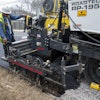
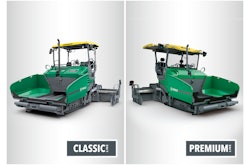
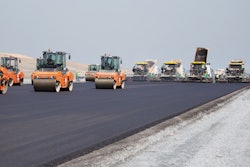
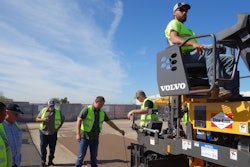
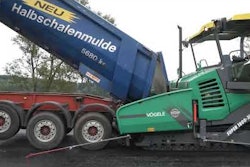

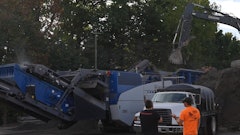




![Lee Boy Facility 2025 17 Use[16]](https://img.forconstructionpros.com/mindful/acbm/workspaces/default/uploads/2025/09/leeboy-facility-2025-17-use16.AbONDzEzbV.jpg?ar=16%3A9&auto=format%2Ccompress&fit=crop&h=135&q=70&w=240)



